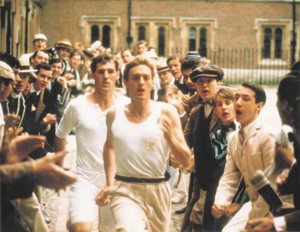Glory Road
Posted on January 10, 2006 at 12:23 pm
B+| Lowest Recommended Age: | Kindergarten - 3rd Grade |
| MPAA Rating: | Rated PG for racial issues including violence and epithets, and momentary language. |
| Profanity: | Some mild language, racist epithets |
| Alcohol/ Drugs: | Drinking |
| Violence/ Scariness: | Tense and emotional scenes, racist vandalism |
| Diversity Issues: | A theme of the movie |
| Date Released to Theaters: | 2006 |
| Date Released to DVD: | 2006 |
| Amazon.com ASIN: | B000EXZFCQ |
A man who coaches high school girls’ basketball gets a job at a small Texas school and not only takes them to the nationals, where they defeat the long-time champions in a stunning upset, he changes the course of college sports history by being the first coach to have five black players in his starting line-up.
Now, that sounds like a Disney movie.
And it is, but before that, it was the true story of coach Don Haskins (Josh Lucas), and his career at Texas Western college (now University of Texas at El Paso).
Haskins arrived at Texas Western in 1965. The school was so poor that the coach’s family had to live in the men’s dorms. There was no money to recruit players. But it had an NCAA spot, and Haskins came to play.
Haskins did not intend to be a civil rights pioneer. He just wanted the best players he could find. And in that era, there were plenty of black basketball players who were not getting offers from anyone else. So Haskins put together a team with a lot of talent and a lot of passion for the game, and then he showed them how to be better players and an even better team than they had ever imagined.
So, yes, there are stirring half-time speeches and montages of winning games, players who are intially wary and resentful and then learn the true meaning of teamwork, heart-stopping overtime tie-breakers, brief “what became of” summaries, and everything else we expect. And you know what? It works just fine because it makes us care about the details and the characters — and the game. The performers serve the story, acting with humility and respect, never going for the glamour or the drama. Derek Luke (Friday Night Lights and Lucas have all the movie star magnetism in the world, but here they show us (again) that they are actors first. The only one who is over the top is Jon Voight, who seems to be working his way through an increasingly grotesque series of putty noses in his recent roles, appears as Coach Adolph Rupp of Kentucky.
The relationships feel real. The games are exciting. The story is touching and exciting. And over the credits, we get to see and hear from Haskins and the real members of that legendary team — and from Pat Riley, who explains why Haskins’ team beat him and his teammates for the national championship. “They were just better.”
Families who enjoy this movie will also enjoy Remember the Titans and Hoosiers. They may also like to read Haskins’
book.

